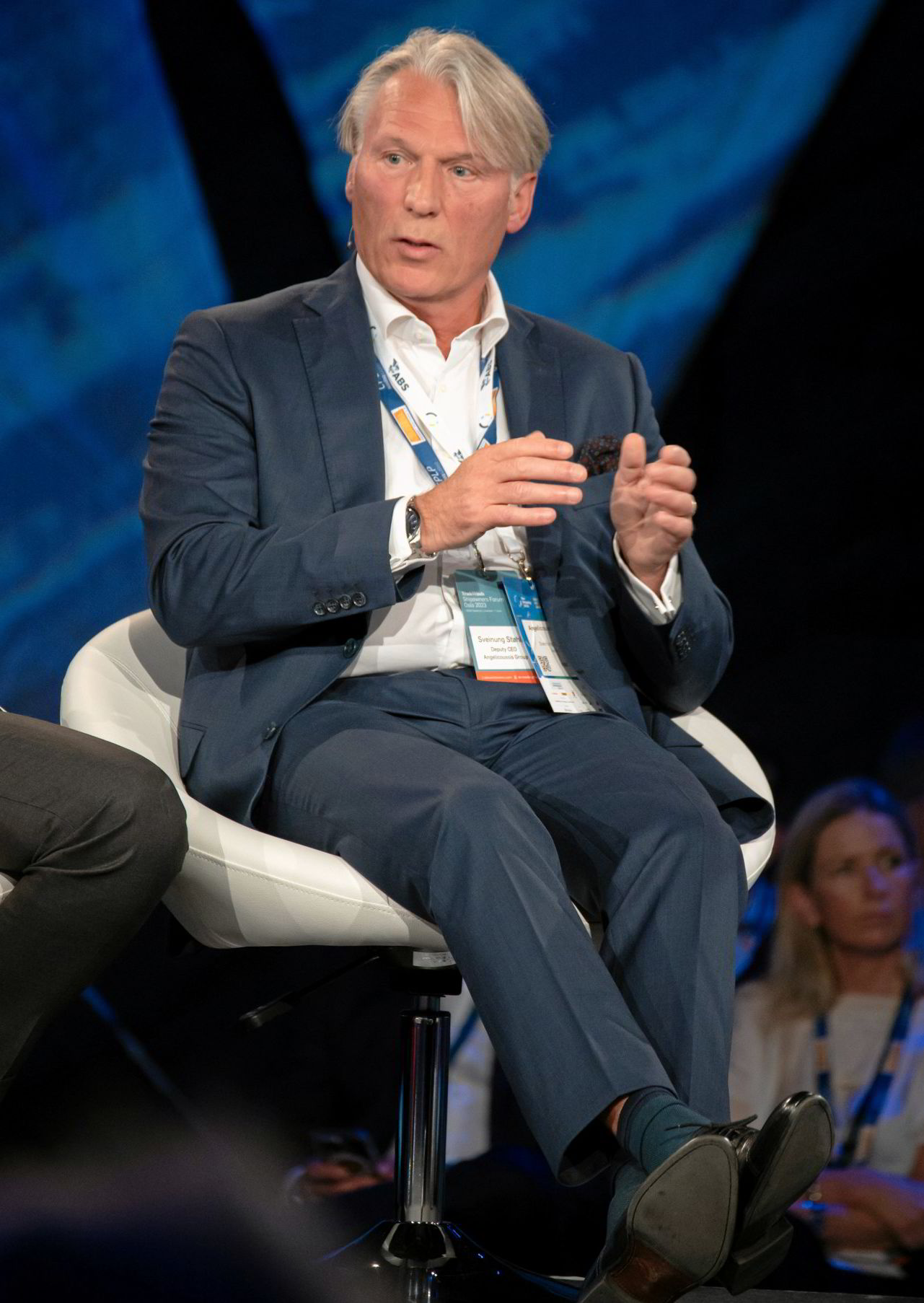Major Greek shipowner Evangelos Marinakis and a key executive for the Angelicoussis Group indicated they are both sticking with LNG as a fuel.
Both the Capital Maritime & Trading chairman and Sveinung Stohle, the deputy chief executive at Angelicoussis Group, said existing infrastructure and fuel availability is a key benefit of the fuel.
Their comments come amid growing orders for vessels that run on methanol and mounting criticism of LNG’s role in decarbonisation because of methane emissions.
In a just-released video of the TradeWinds Shipowners Forum Oslo during Nor-Shipping, Marinakis said picking what vessel to order and what engine it should use is the biggest challenge in today’s shipping markets.
That is because of the multitude of fuel choices under discussion today, including methanol, ammonia, biofuels and LNG, the Capital Maritime & Trading chairman told the recent TradeWinds Shipowners Forum in Oslo during Nor-Shipping, according to a just-released video of the event.
“It’s a bit confusing,” he said of the information available about fuel choices.
He said it will take time to build up the infrastructure for methanol or ammonia as a fuel.
“At the end of the day, what we see that is more certain, if we can use this word in the shipping, is LNG dual fuel,” Marinakis said.
LNG-fuelled tankers
That is why his company has ordered tankers a stack of tankers that are fuelled by both LNG and conventional bunkers. The company’s orderbook of LNG carriers also are poised to use the alternative fuel, and the Clarksons’ Shipping Intelligence Network database shows its container ships on order are “LNG ready”.
LNG is facing growing criticism as a fuel because of methane emissions, but Marinakis said what it has in its favour is the infrastructure that is already in place.
Plus, he said LNG will be used as a fuel in shipping for at least the next 10 years.
Stohle rejected the description of LNG as a transitional fuel. His company is sitting on a 19-ship orderbook made up entirely of LNG-fuelled vessels.

“We see it as an immediate solution,” he said. “It’s available, it works, it’s first and foremost safe, the infrastructure is there and at the moment, at least, the price is actually quite attractive.”
And he said that the fuel results in 25% CO2 emissions reductions.
LNG critics often point to the fact that methane is 80 times more potent as a greenhouse gas over a 20-year time scale when released directly into the atmosphere through upstream releases or slippage on board vessels.
But Stohle pointed out that bio-LNG or e-LNG produced from renewable electricity can be blended in.
“So it could be a permanent solution,” he said.
Methanol is growing as an alternative fuel in shipping orders. However, Stohle pointed out that it is unclear when green methanol will be available in significant quantities.
“That doesn’t give me a good reason to make that investment, because in the immediate [term], you’re going to continue burning oil,” Stohle said.
The full video of the forum is available at www.tradewinds.events/Oslo2023/.
Read more
- Podcast: Are contracts the key to unlocking emissions cuts in shipping now?
- Cargill’s Dieleman on methanol fuelling piggybackers: ‘That’s exactly what we wanted’
- Sea Cargo Charter calls for action as report shows shipping’s climate alignment stuck in neutral
- Cargill Ocean reports carbon dip driven by ‘more sluggish economic environment’
- Viewpoint: Why ammonia will accelerate autonomy, usher in a new safety era and reshape shipping



